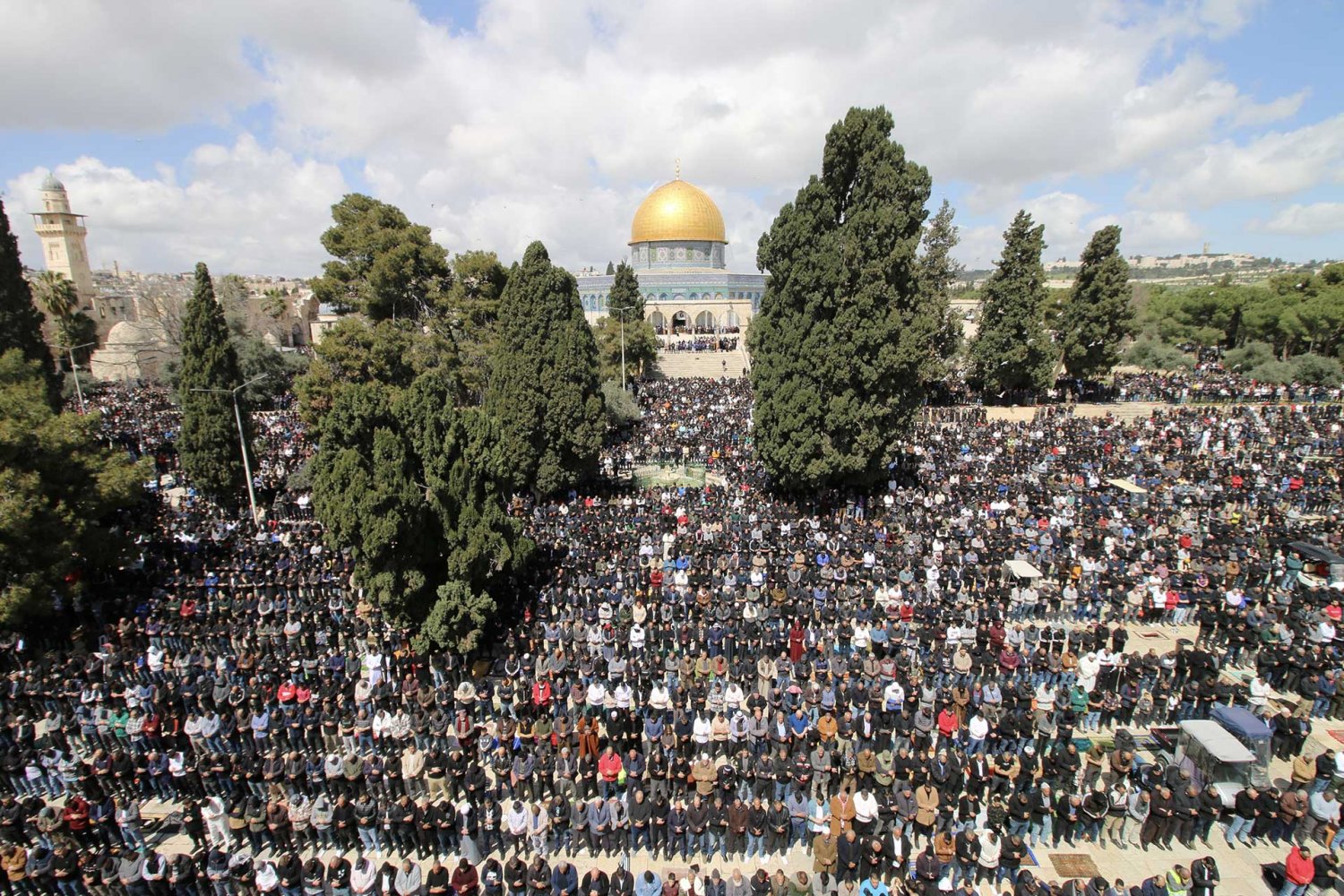On March 22, 2024, the second Friday of Ramadan, 120,000 Muslim worshippers prayed at al-Aqsa Mosque. This is a record number compared to Fridays over the last five months since Israel closed the city due to its war on Gaza, but it is nothing like Fridays during Ramadan in previous years, when as many as a quarter of a million Muslims have prayed at the mosque. This is according to Azzam al-Khatib, director-general of the Department of Islamic Endowments (Waqf), the religious foundation responsible for managing the affairs of Islamic holy sites in Jerusalem.
The drop in numbers this year is attributed in part to the massive armed Israeli presence in every corner of Jerusalem. The city deployed thousands of police around the city.1 All the streets surrounding the Old City now resemble military barracks. The city’s neighborhoods have been filled with Israeli security personnel who prevent cars from approaching the Old City. At the entrance to the mosque esplanade, Israeli police search all young Palestinian men who wish to enter.
On this Friday, thousands of worshippers spread over every part of the al-Aqsa Mosque and esplanade, occupying sunny areas on this cold day. It was a beautiful sight.
For those who made it in, the experience was deeply moving.





